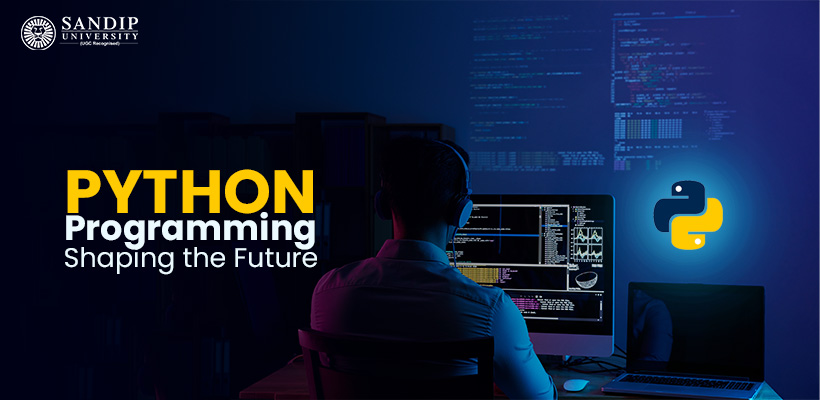Python has long been a popular programming language among developers, known for its simplicity, readability, and versatility. From web development and data analysis to artificial intelligence and machine learning, Python has made its mark across a wide range of domains. As we look to the future, it’s evident that Python will continue to play a significant role in shaping the technology landscape. In this blog post, we will explore the future of Python programming and the exciting possibilities it holds.
1) Machine Learning and Artificial Intelligence: Python has emerged as a leading language in the field of machine learning and artificial intelligence (AI). Libraries like TensorFlow, Keras, and PyTorch have propelled Python’s dominance in this domain. As AI continues to advance, Python will remain an essential tool for developing and implementing cutting-edge algorithms, neural networks, and deep learning models. Its simplicity and extensive library ecosystem make it an ideal choice for both researchers and practitioners.
2) Data Science and Analytics: Data science and analytics have become integral to decision-making in various industries. Python, with its rich set of libraries like NumPy, Pandas, and Matplotlib, offers a comprehensive platform for data manipulation, exploration, and visualization. Python’s data science capabilities will continue to evolve, making it easier for professionals to extract insights, build predictive models, and make data-driven decisions.
3) Web Development: Python has a wide range of frameworks, including Django and Flask, that enable rapid web application development. These frameworks, coupled with Python’s simplicity, scalability, and vast community support, make it an excellent choice for building robust and feature-rich web applications. With the advent of technologies like serverless computing and containerization, Python will continue to be a preferred language for web developers.
4) Internet of Things (IoT): As the Internet of Things (IoT) revolutionizes the way we interact with technology, Python is poised to play a vital role in this domain. Python’s lightweight nature and extensive library support make it well-suited for developing IoT applications. From controlling devices to processing sensor data, Python’s versatility enables developers to build IoT solutions quickly and efficiently.
5) Automation and Scripting: Python’s ease of use and readability make it an excellent choice for automation and scripting tasks. As businesses strive to optimize their workflows and streamline repetitive processes, Python will continue to be a go-to language for automation. With libraries such as Selenium and Beautiful Soup, Python can automate web scraping, testing, and deployment processes, saving time and effort for developers.
6) Quantum Computing: As the field of quantum computing advances, Python is making its presence felt in this cutting-edge domain. Libraries such as Qiskit and Cirq provide a Pythonic interface to interact with quantum processors, simulate quantum algorithms, and explore quantum information science. Python’s role in quantum computing will continue to expand as this technology matures and becomes more accessible.
Conclusion: Python’s future in the programming landscape appears bright and promising. Its versatility, ease of use, and extensive library ecosystem position it as a preferred language for various domains, including machine learning, data science, web development, IoT, automation, and even quantum computing. Python’s community-driven development and continuous innovation ensure that it stays relevant and adapts to emerging technologies and challenges. As we venture into the future, Python will continue to shape the technology landscape, empowering developers to build innovative and impactful solutions.
Whether you’re a beginner or an experienced programmer, learning Python and keeping up with its advancements will undoubtedly open up a world of opportunities. So, embrace Python, explore its vast possibilities, and be prepared to be at the forefront of technological innovation.

